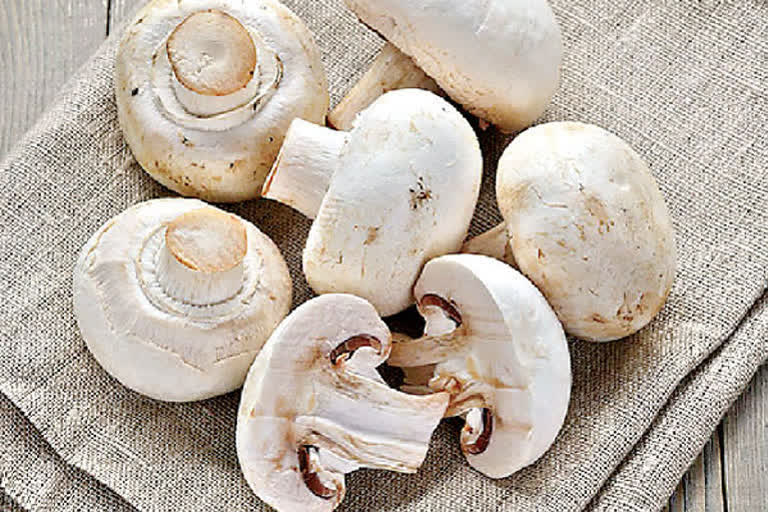Bhawanipatna (Odisha): Kutenpadar, a non-descript tribal village in Odisha's Kalahandi district -- infamous for starvation deaths in the 80s – has now turned into a model hamlet, where mushroom farming paved the way for social development and individual progress. It all began when Banadei Majhi, now 45 years of age, took up mushroom cultivation from paddy straw, having received training at a Nabard camp in 2007-08. Soon after, villagers here, who would earlier depend on forest produce to eke out a living, followed in her footsteps, and their efforts and willpower, over the years, lifted the village from poverty.
Majhi, often referred to as ‘Mushroom Maa' (mushroom mother) by locals, lives with her husband and four children. She hails from a poor family that owned only two acres of government land, which was fit to grow just millets. Decades ago, quite like other villagers, her family also depended on forest produce and manual labour to arrange for two square meals a day.
After receiving basic training from NABARD for two years, Majhi started growing the fungus on her field, much to the surprise of her neighbours, and soon her efforts bore fruit. Now, a role model for the rest of the village, she earns more than Rs 1 lakh from mushroom farming. "I earned a net profit of over one lakh rupees between June and October from mushroom cultivation. This apart, I make Rs 50,000 to Rs 60,000 from cultivation of vegetables, pulses and oilseeds,” the tribal woman said, adding that she is getting a pucca house built for her children from the money she saved over the past few years.
Read: Pradhan urges Culture minister to direct ASI to preserve monuments in Ratnachira valley in Puri
The family that once struggled to make ends meet owns as many as 45 goats. Majhi's husband Jagabandhu and daughter Jagynseni help her in her day-to-day activities. Her two sons are pursuing college education and another daughter has moved out of the hamlet after marriage. Jagabandhu has also purchased a motorbike for selling the farm produce. Inspired by Majhi's success story, 50 other households in the village have taken to mushroom cultivation, each of them earning at least Rs 50,000 a year from the agricultural venture.
Malaya Kumar Meher, the district development manager of NABARD, said the 45-year-old woman imparts training to women in mushroom cultivation in 10 nearby villages. She was awarded by NABARD in 2010 for empowering women through her contributions in the field of mushroom cultivation. "Banadei is a role model for women. Hers is a story of commitment and dedication," Meher stated.
Kutenpdar village, 10 km from the district headquarters town of Bhawanipatna, has 55 households, 40 of which belong to tribal families. Recently NABARD has declared Kutenpdar as ‘mushroom village'. "A decade back, two meals a day was a blessing for us. However, things have changed for better after the introduction of a watershed programme supported by NABARD," Majhi said, while also explaining that rainwater conservation trenches have turned the once-fallow lands fertile.
Almost all households in the village have been benefited from mushroom cultivation, and additional vegetable farming, said Raju Majhi, a resident of Kutenpdar. "We learnt the tricks of the trade from Banadei. Our lives have changed for better after we took up mushroom farming. Thankfully, our kids now go to school," Raju added.
PTI



